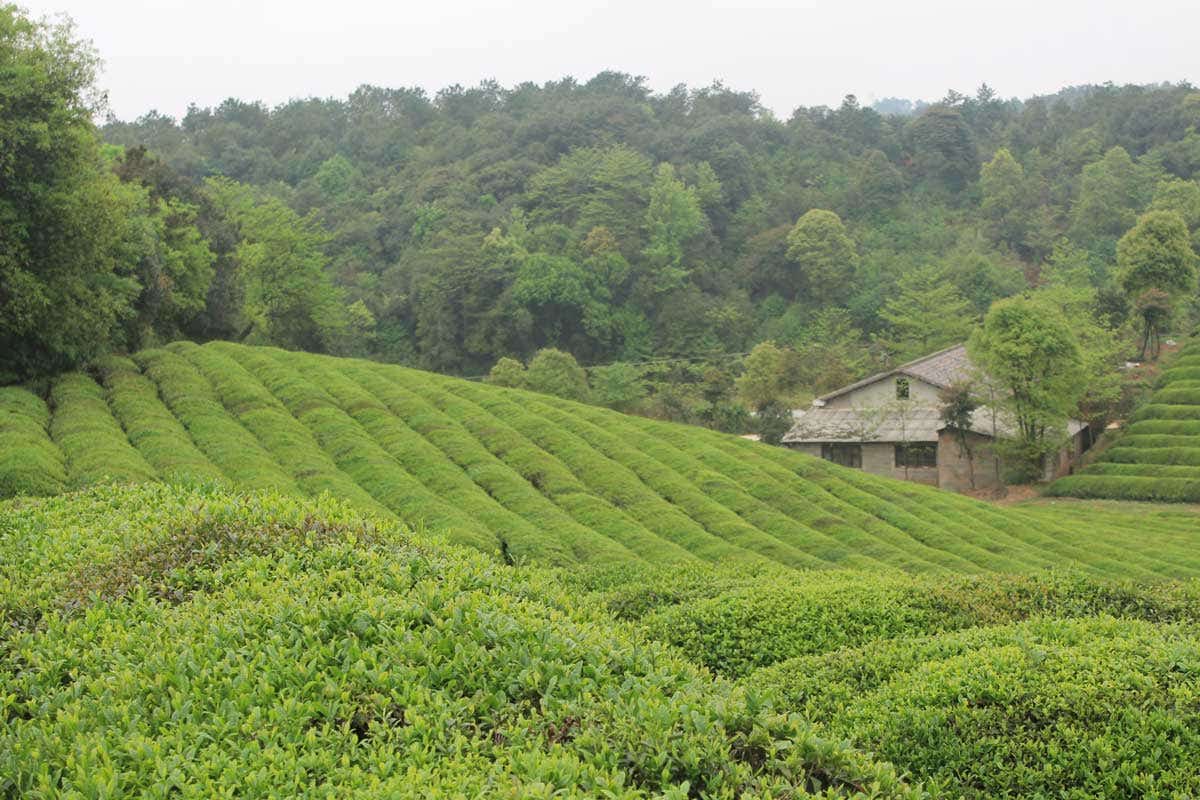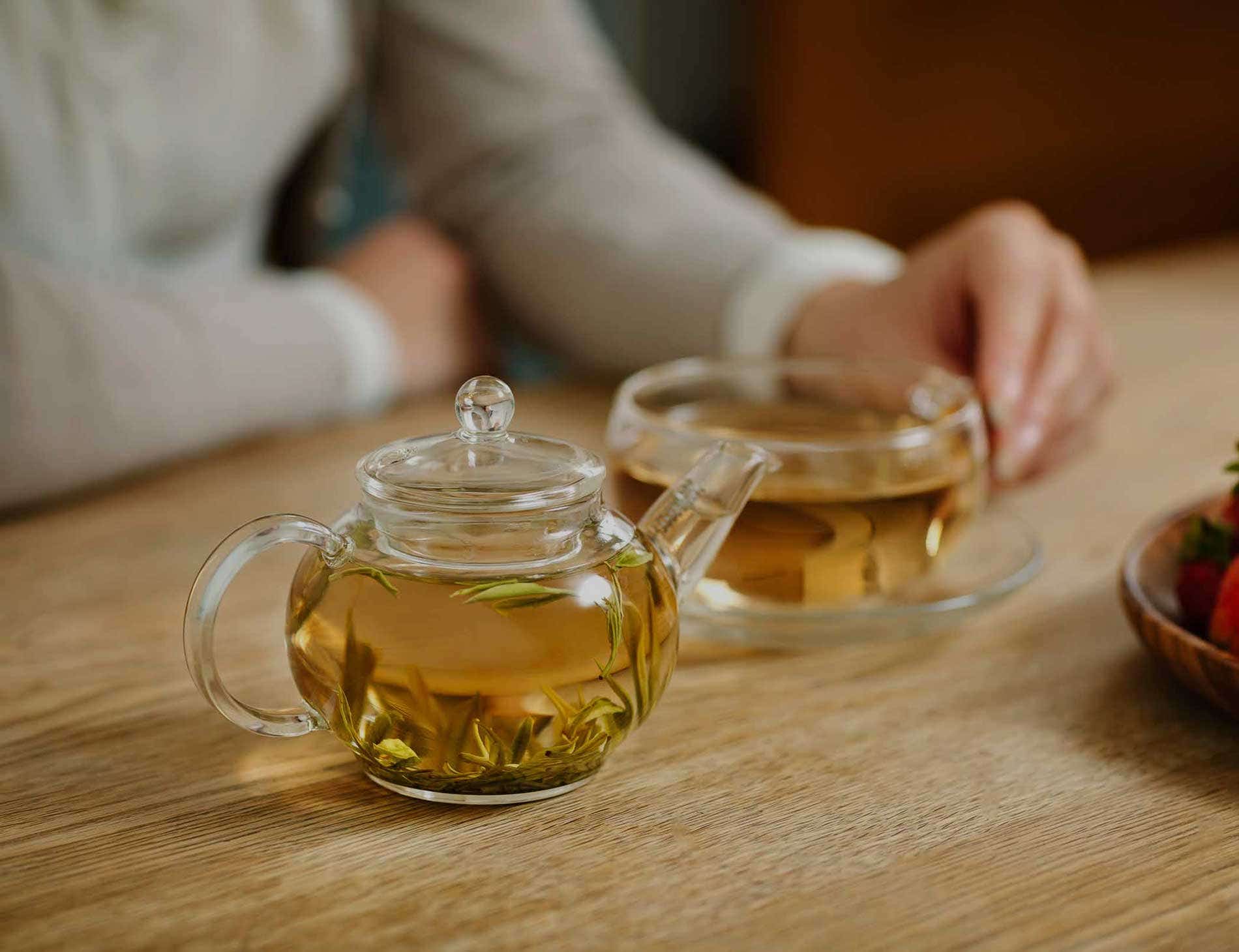Guide to White Tea
White tea has been revered for centuries. Its fragility and scarcity in earlier centuries gave it an almost sacred reputation. And despite its broader cultivation today, white tea is still treated with the same respect and awe.
More recent trends within China have seen the emergence of a sought-after market in aged white tea. Locals in Fuding have a saying: 一年是茶,三年成药,七年为宝的老白茶 – after three years aged white tea becomes like medicine; after seven years it becomes like treasure.
The first-known white tea is believed to have been cultivated for the Emperors of the Chinese imperial dynasties. Their yearly tea tribute used the youngest, most delicate buds from the finest tea plants.
The white tea we know today was first discovered in China’s Fujian province. White tea was so delicate that it only moved to different regions of the world once loose-leaf tea production improved. Now, many countries produce their own white tea from other tea plant varieties, the most popular of which include Silver Needle and White Peony.
Our white teas are sourced from the home of white tea: the Fujian province, and also from Guangxi and Yunnan in Southern China. To discover more about great tea regions, visit our World of Tea.

What is white tea?
White tea is different to the other types of tea, in that they are the most minimally processed, with very little oxidization. Commonly picked in the early spring and spring season, it is comprised of ‘unfurled leaves’, or ‘buds’. While these buds are still young, they are covered in fine, silvery-white hairs.
Deftly handpicked with great skill, they are then withered slowly for a prolonged period of time on bamboo mats – up to 72-hours before being dried.
The resulting effect is that white tea retains its natural anti-oxidants and develops a gentle colour, as well sweet and mellow flavours that are soft in texture, making it the perfect thirst-quenching drink throughout the day.
What are the health benefits of White Tea?
In China, white tea is highly regarded for its benefits by masters of Chinese medicine and by the general public. While none of them have been explicitly proven, white tea has been enjoyed for thousands of years. In the very least it can be said that drinking tea is good for you with respect to the spirit.
We also know that white tea is high in polyphenols, which are powerful antioxidants, and that it has been used in Chinese medicine to help improve teeth, skin, and hair, as well as supporting the immune system. When it comes to tea and health benefits, we embrace the Chinese medicinal philosophy, which centres around four core pillars:
- Cultivating an appropriate mental attitude
- Resting well
- Exercising to stimulate circulation
- Enjoying a balanced diet
Said with certainty, the best tea for you is the one (or ones) that you enjoy the most.


White Tea and Caffeine
It is a common myth that white tea has less caffeine than the other tea types. It can, in fact, sometimes have more than you think. White teas are comprised of young buds picked early in the spring. While they have the necessary qualities to make a sweet, delicate tea, they are also the part of the tea plant with the most caffeine present. In comparison to coffee, however, the levels in a 250ml cup are lower.
There are studies that show that too much caffeine isn’t a good thing, but, within reason, studies have also shown that it can actually be very good for you. If you’re concerned about caffeine, our Tea and Caffeine guide can help.
Tips for Making White Tea
Our White Tea varieties come in bud, full leaf and tea-bag forms. Our buds and leaves are best when allowed to infuse with enough space to unfurl. Our teabags are designed with enough space for the tea leaves steep completely.
Tip One
The quality of the water is as important as the quality of the tea. If your water is hard and treated with chemicals, invest in a water filter. They will go a long way in improving your tea. Softer water has a lower mineral content, allowing the flavours of the tea to come through.
Tip Two
Getting the water temperature right is key when making white tea. White teas are best infused in water at 80 degrees Celsius. At this temperature, the teas’ delicate flavour profile and notes will shine through.
Tip Three
Getting the ratio of water to tea right is crucial, as is the steeping time. Each tea variety is unique, so make sure to read the instructions for each.
Tip Four
We want the full flavour of our tea to reach your cup, which is why we put so much care into its packaging. Our tea bags and tea caddies are designed to ensure that the tea stays fresh and flavourful – they’re airtight, sealed, and opaque to block out sunlight. Store your tea in a cool and dry area as well.
Picking the Right White Tea for You
Jasmine Silver Needle
FOR THE NEWCOMER
A long-standing favourite, the Jasmine Silver Needle combines the finest Silver Needle with the fragrance of fresh jasmine flavours. It is grown in Yunnan, southwestern China, in early spring and scented in the summer with jasmine. The sweet vanilla notes of the white tea are perfectly balanced with the fresh, fragrant flavours of the jasmine.
White Peony
FOR THE EXPLORER
Our White Peony combines the delicate Silver Needle white tea bud with two green tealeaves. Handpicked in spring and processed in Fujian Province in southeastern China, it too undergoes a natural drying process. The depth and intricacy of the green tea is perfectly complemented by the fresh honey-sweet aromas of the White Peony, with notes of melon and cucumber.
Silver Needle Supreme
FOR THE CONNOISSEUR
Our Silver Needle is cultivated in the Guangxi Province in southern China in spring. Composed of only whole buds, Silver Needle is the least processed of all tea types. The buds are withered and dried naturally over four days, bringing out the refreshing, honey and gentle melon flavours.




